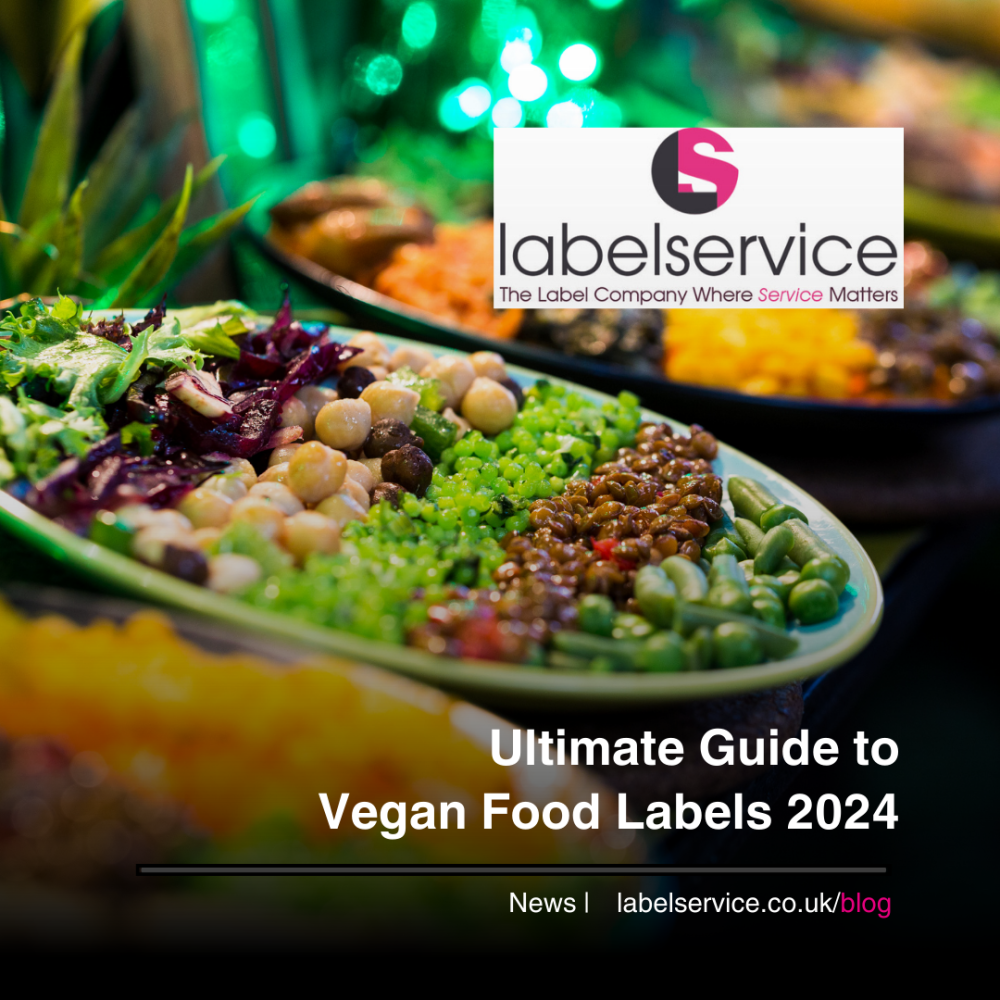Globally, food systems are responsible for more than ⅓ of greenhouse gas emissions. This is largely due to meat production. To reach the Paris Agreement goal of 40% reduction in emissions, the research shows that we must reduce meat consumption. Experiments at the MIT Media Lab found that changing food labelling may be key in this endeavour.
In 2021, Alex Berke, a PHD student in the City Science group at the MIT Media Lab, made a pitch to the Lab community: align the Lab’s food expenditures with the Lab’s sustainability goals by not serving meat at catered events. The proposal polarized the community—why? To answer this question the proposal transformed into a research project, which Berke presented back to the Media Lab community in 2023. Berke and Kent Larson, the director of the City Science group, co-authored a paper published in the journal Appetite entitled “The negative impact of vegetarian and vegan labels: Results from randomized controlled experiments with US consumers.”
Within their paper, Berke and Larson highlight the extensive research across the globe that has described the disastrous impacts of our current food systems. They emphasize a simple shift that could impact the way meat and animal products are viewed:
“One might also consider the typical practice of labelling menu items as vegetarian or vegan, without corresponding (meat) labels for items containing meat, as a choice architecture that promotes items with meat as the default… Indeed, our studies find that vegetarian and vegan labels effectively deter consumers from choosing these options. Removing these labels may provide an extremely simple and low-cost means for restaurants and other institutions to reduce their environmental impact, with minimal changes to menus, and without impacting consumers’ freedom of choice.”
Berke conducted multiple randomized, controlled experiments to better understand the resistance to plant-based options and test a hypothesis that language, or labels, play an important role. The research question: Do vegan and vegetarian labels typically found on menus have a negative impact on people’s likelihood to choose these more sustainable options? The experiment results showed yes.
Conversations about food sustainability often focus on novel or expensive solutions, such as synthetic meats or hydroponics. But the research offers a much simpler and more low-cost option that could have an important impact. Removing vegetarian and vegan labels to normalize plant-based eating, and placing these options as a default, are immediately actionable changes towards more sustainable eating.
Vegan diet is better for environment
A new study has revealed that adopting a vegan diet can have a massive positive impact on the environment, significantly reducing climate-heating emissions, water pollution, land use, wildlife destruction, and water consumption. The study, which focused on real diets of 55,000 people in the UK and data from 38,000 farms in 119 countries, provided substantial evidence supporting the environmental benefits of vegan diets. “Our dietary choices have a big impact on the planet. Cutting down the amount of meat and dairy in your diet can make a big difference to your dietary footprint,” Prof Peter Scarborough at Oxford University, who led the research told Guardian.
The research demonstrated that vegan diets resulted in a staggering 75 per cent reduction in climate-heating emissions, water pollution, and land use compared to diets that included over 100g of meat daily. Moreover, the adoption of a vegan diet cut wildlife destruction by 66 per cent and water usage by 54 per cent, as reported by the Guardian.
Experts stress the urgency of adopting sustainable food production practices, encouraging labels on foods to indicate their environmental impact, regulating promotions, and taxing high-carbon foods. While individuals have a role to play in their dietary choices, policy support and innovative agricultural practices are vital in achieving sustainable food production. The UK government maintains that individuals should make their food choices independently, while recognising the importance of achieving the net-zero target. The farming minister has expressed interest in exploring genetically modified cows that emit less methane as a potential solution.
Labelling makes a difference
New research has found that meat-eaters were “significantly less likely” to choose plant-based meals if they were labelled as vegan. The study, called The negative impact of vegetarian and vegan labels, was conducted at the Massachusetts Institute of Technology (MIT) in the United States. It consisted of two field studies. In both experiments, college students were offered the choice of a vegan hummus wrap or a Greek salad wrap (which contained dairy feta cheese) on a virtual RSVP form for events at the university’s media lab.
The ingredients of each item were listed out for both dishes on both forms. For half of the participants, the wrap was labelled vegan, but it was left unlabelled for others. In the first field study, 36 percent of the participants chose the vegan option when it was marked as vegan. When it wasn’t labelled, 60.7 percent chose it. In the second field study, 33.9 percent chose the marked vegan option, while 63.8 percent chose it when it was unmarked. Researchers then widened their study to the broad US population, finding that consumers were “significantly” less likely to choose an option labelled “vegan” or “vegetarian.” In contrast, vegans and vegetarians still chose meat-free items when labels were removed, meaning it’s unlikely that labels impact their decision.
According to study authors, their findings indicate that labels should be removed from food products to encourage more people to choose meat-free options. “Removing these labels may provide an extremely simple and low-cost means for restaurants and other institutions to reduce their environmental impact, with minimal changes to menus, and without impacting consumers’ freedom of choice,” said study authors Alex Berke and Kent Larson. Berke and Larson conducted the study over concerns about the impact our food choices have on the environment. Adopting a plant-based diet is said to be one of the best things we can do to reduce our carbon footprint. Doing so could decrease it by around 73 percent.
Animal agriculture has been found to be responsible for roughly 14.5 percent of global greenhouse gas emissions. Some experts believe this figure to be underestimated, however. Farming animals is also a leading cause of deforestation, biodiversity loss, species extinction, and water pollution. Scientists from bodies like the UN and University of Oxford have stated that we need to dramatically change our farming system if we are to avoid climate collapse.
While there has been a rise in vegans and vegetarians across the globe, there is still a growing demand for meat. This is because the popularity of meat-free diets isn’t growing as fast as the population. To combat the increasing consumption of meat, cultivated meat and realistic meat alternatives have been put forward as possible solutions. According to a media release from MIT on Berke and Larson’s research, removing labels from vegan foods could provide a cheaper solution than these.
“Conversations about food sustainability often focus on novel or expensive solutions, such as synthetic meats or hydroponics. But the research offers a much simpler and more low-cost option that could have an important impact.” It added that removing vegan labels could “normalize plant-based eating” by placing these options as “default.”
A new poll commissioned by dairy-free cheesemaker Julienne Bruno, surveyed 2,007 adults with varying dietary requirements. It found that almost half of UK diners (45 percent) would order more planet-friendly food if the ingredients were listed instead of being labelled as ‘vegan’ or ‘plant-based’. This included two fifths of meat eaters, over half of pescatarians (55 percent) and even vegans themselves (54 percent).
More than two in five also admitted to disliking the term ‘plant-based’, while 32 percent shared similar views towards the label ‘vegan’. Taste and quality of food was identified as a strong factor, with one in three meat eaters and pescatarians saying they would leave a rest aunt if there are no good plant-based options. In sustainability terms, 42 percent of participants want restaurants to show brands on their menus – with over a quarter saying they would order greener options if a brand is featured.
Axel Katalan is the Founder of Julienne Bruno, which doesn’t explicitly label its dairy-free cheeses as plant-based or vegan. He argued such labels are not a ‘unique selling point’ of a product. “The research indicates diners want their food to be original, taste good and offer quality produce regardless of whether it’s vegan,” Katalan added. “Along with including trusted brand items on menus, this could be key to getting more diners to eat more sustainably very easily. “With vegans even being put off vegan labelling… I think it’s time for a shift in how we talk about and label food.”
A recent study published in the journal Apetite yielded similar results. Researchers analysed a group of US students attending a catered event – with only two food options available. Participants could opt for a hummus wrap, which contained no animal-products, or a Greek salad containing dairy. They had to order their meal via an online form. For some students, the two dishes were labelled as ‘vegan’ or ‘non-vegan’, while others had a menu free-from any labels. Experts concluded that when students saw the ‘vegan’ label, they were significantly less likely to choose that option. However, people often preferred the vegan option when it wasn’t labelled as ‘vegan’. “The results suggest removing vegetarian and vegan labels from menus could help guide US consumers towards reduced consumption of animal products,” the study states.
Can the term ‘vegan’ even be trusted?
The vegan diet has soared in popularity in the last five years but some meat substitutes labelled as vegan contain milk or egg, according to an analysis of products. Market-research firm Mintel found that sales of products such as meat-free sausages had doubled from £289m in 2017 to £586m in 2021. Last year sales fell slightly by 6%, even though 49% of people eat meat substitutes regularly. With the increasing demand for these goods, those in the supply sector are looking to meet those demands with a variety of products awash with terms such as vegan, vegan-friendly and plant based.
The Chartered Trading Standards Institute (CTSI) researched what people assume about vegan and plant-based products based on surveying 2,000 people. They found 76% of consumers believe a vegan label means it is free from animal-derived products, especially allergens such as eggs, milk, fish and shellfish. CTSI analysis found, however, that one in three vegan products on sale actually contained milk or egg. The law on what is vegan is opaque, with no legal definition of the word. This means a vegan product does not have to be completely free of animal-derived products.
The question of eggs and vegetarianism is a sticky one, especially when it comes to labelling. Vegetarianism, and diets in general, are a matter of personal choice, and everyone is guided by their own standards and ethics. But eggs occupy an amorphous space in the world of animals and protein. They are found in the dairy section of many grocery stores, even though Delish notes they are not considered dairy, and as a protein, Harvard’s updated food pyramid has them in the same section as meat and poultry. According to Good Housekeeping, because eggs contain no animal flesh, they are considered vegetarian, but some stricter vegetarians, and certainly vegans, consider them an animal product and avoid them.
So if eggs are considered vegetarian, why do they need to be specially labeled? Food labeling is a world of confusing jargon, and egg labels may be some of the worst offenders. As the American Society for the Prevention of Cruelty to Animals (ASPCA) notes, from the perspective of food ethics, egg carton labels range from truly meaningful, comprehensive terms like Animal Welfare Approved to the nearly meaningless, like “natural.” A “vegetarian” label on eggs falls somewhere between these two extremes, as it does convey some information about your eggs, though perhaps not what you’d expect.
Stephanie Jaczniakowska-McGirr, Director of Corporate Engagement at ProVeg, said: “It’s really interesting to see that consumers prefer ‘plant-based’ labels to ‘meat-free’ or ‘vegan’ terminology. “These results echo many brands current labelling strategies, with the use of ‘plant-based’ labels becoming very common, particularly in the UK, where this survey was conducted. ”She continued: “With the plant-based food industry experiencing huge growth, there are now many products on the shelves to meet consumer demands. “But this means that targeting consumers with the right labelling has become more important than ever,” “These reports provide companies with insights that will help them more precisely hone in on their customer base with the right words for the right products. ”Speaking about the value of the reports, she added: “Such research is critical to help brands effectively target the growing number of flexitarian consumers and understand the best terminology to use on their products to ensure consumers know exactly what they are purchasing.”

















